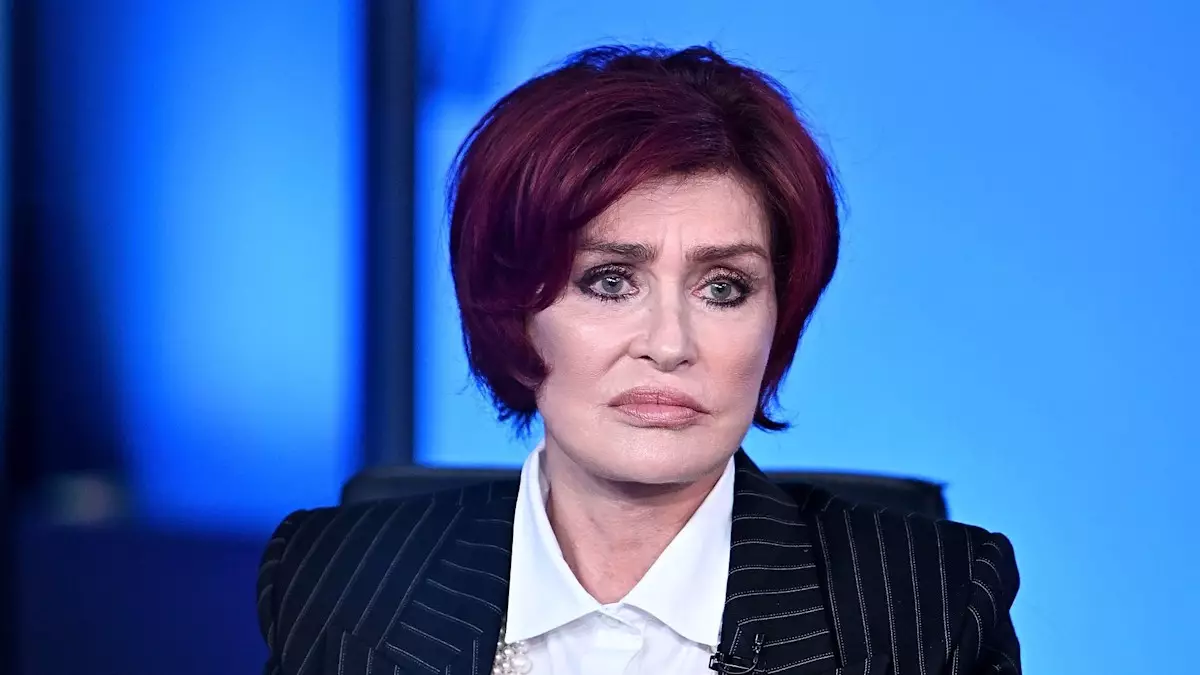The world of entertainment often casts long shadows where the bright lights of fame can quickly become blinding. As seen in the poignant sentiments shared by Sharon Osbourne regarding the premature passing of Liam Payne, the former One Direction star, the toll of celebrity culture on young artists is a matter that needs urgent discussion. Osbourne’s heartfelt tribute encapsulated not just grief, but also the collective regret of an industry that seems to neglect its emerging talents, often leaving them to navigate stormy seas without a compass.
Liam Payne, who rose to stardom as part of One Direction—a boy band beloved by millions—jumped into the variegated world of fame as a mere teenager. The pressures on young stars to conform, perform, and shine are tremendous. Osbourne pointedly asked, “Who was in your corner?” reflecting a harrowing truth; many young talents find themselves not encircled by support but rather isolated in their struggles, battling against expectations that can be suffocating.
The ascent of One Direction, which began during a pivotal season of The X Factor in 2010, embodies a story of meteoric success. With their breakout single, “What Makes You Beautiful,” they became a worldwide sensation. However, standing on the summit of success often shadows the very real challenges that lie beneath the surface. As much as fandom celebrates the external achievements, the internal turmoil faced by these young stars often goes unnoticed.
Sharon Osbourne’s statements reveal a deeper concern: the music industry’s obligation toward its young artists. Emerging from an arena that prizes performance and image over well-being, artists like Liam Payne grappled with psychological burdens that manifest as challenges in personal health. The appreciation of talent must be matched with the acknowledgment of the requisite support systems.
Despite the bright lights and adoration, stardom often harbors dark corners. The pressures of public life took a toll on Liam, who bravely opened up about his struggles with alcoholism during the peak of his fame. His candid reflections on falling into addiction at the pinnacle of success highlight a critical issue that often goes unaddressed—the existential crises young stars endure amidst the chaos of celebrity culture.
During an interview on The Diary of a CEO podcast, Liam courageously admitted reaching “rock bottom.” It’s a stark reminder of the human cost of fame, as many young artists find themselves gripped by vices to cope with the excessive scrutiny and unrealistic expectations. The pandemic further exacerbated these issues, as isolation often drives those grappling with addiction deeper into their struggles.
In 2023, Liam’s hopeful announcement about his sobriety and recovery painted a picture of resilience. This revelation was met with widespread encouragement from fans and industry peers alike, who fervently wished for this to be the turning point in his life. His journey serves as a crucial narrative for other young artists navigating similar tribulations, showcasing the importance of community and honest dialogue regarding mental health and addiction.
However, the tragic turn of events that followed has left many disheartened, echoing Osbourne’s sentiments about feeling let down by an industry that often prioritizes profit over people. Countless individuals within the industry, including fans, must reflect on the necessity of creating an environment that nurtures rather than exploits its stars.
Sharon Osbourne’s tribute to Liam Payne serves as both a memorial and a wake-up call. It underscores the pressing need for systemic changes in the music industry to prioritize the mental and emotional well-being of artists. It calls for the establishment of robust support mechanisms that not only assist in their career development but also address the underlying struggles they might face.
As we remember Liam, it becomes our collective responsibility to advocate for a kinder, more understanding industry that recognizes the complexity of fame. Creating safe spaces for conversation, promoting mental health awareness, and fostering genuine connections are critical steps we must embrace to ensure that no artist endures undue suffering in silence. Ultimately, this tragic loss should ignite a movement toward a more compassionate approach to fame, ensuring that the next generation of artists won’t feel as isolated as Liam felt throughout much of his short life.
